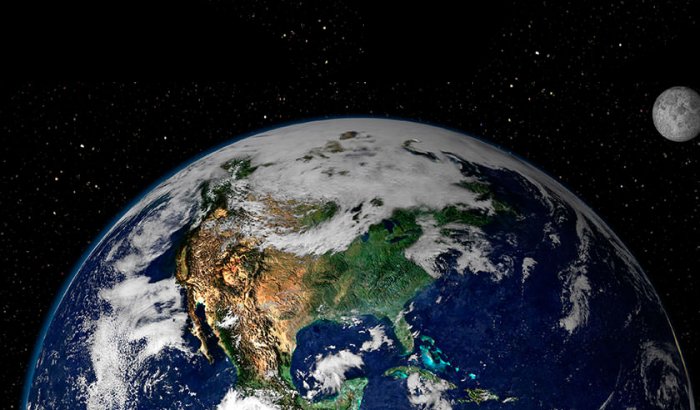Eddie Gonzales Jr. – MessageToEagle.com – Researchers from the University of Copenhagen have shown that the precursor of our planet – the proto-Earth – formed within a time span of approximately five million years, which is much faster than previously thought.
This finding indicates that the proto-Earth formed in what corresponds to about a minute and a half if the solar system’s estimated 4.6 billion years of existence with a 24-hour period.
On an astronomical scale, this is extremely fast, the researchers explain.
The results oppose to the traditional theory that the proto-Earth formed by random collisions between larger and larger planetary bodies throughout several tens of millions of years – equivalent to about 5-15 minutes out of the above-mentioned fictional 24 hours of formation.
Instead, the new results support a more recent, alternative theory about the formation of planets through the accretion of cosmic dust.
“The other idea is that we start from dust, essentially. Millimeter-sized objects, all coming together, raining down on the growing body and making the planet in one go,’ Associate Professor Martin Schiller, and the study’s lead author, explains in a press release.
‘Not only is this implication of the rapid formation of the Earth interesting for our solar system. It is also interesting to assess how likely it is for planets to form somewhere else in the galaxy.’
By studying the isotopic mixture of the metallic element in different meteorites, the researchers found only one type of meteoritic material with a composition similar to Earth: The so-called CI chondrites.
The researchers behind the study describe the dust in this fragile type of meteorite as our best equivalent to the bulk composition of the solar system itself. It was dust like this combined with gas that was funneled via a circumstellar accretion disk onto the growing Sun.
This process lasted about five million years and our planets were made from material in this disk.
Now, the researchers estimate that the proto-Earth’s ferrous core also formed already during this period, removing early accreted iron from the mantle.
Other meteorites, for example from Mars, tell us that at the beginning the iron isotopic composition of material contributing to the growing Earth was different. Most likely due to thermal processing of dust close to the young sun, the researchers say.
If the theory of early planetary accretion really is correct, water is likely just a by-product of planet formation.
‘If the Earth’s formation was a random process where you just smashed bodies together, you would never be able to compare the iron composition of the Earth to only one type of meteorite. You would get a mixture of everything,’ Schiller adds.
Based on the evidence for the theory that planets form through the accretion of cosmic dust, the researchers believe that the same process may occur elsewhere in the universe.
This means that also other planets may likely form much faster than if they grow solely from random collisions between objects in space.
‘If the theory of early planetary accretion really is correct, water is likely just a by-product of the formation of a planet like the Earth – making the ingredients of life, as we know it, more likely to be found elsewhere in the universe,’ explains Centre Leader and co-author of the study, Professor Martin Bizzarro.
Written by Eddie Gonzales Jr. – MessageToEagle.com Staff







